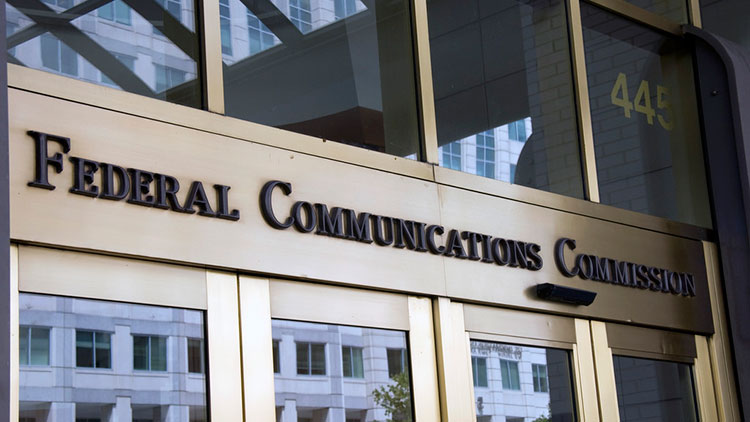FCC Resolves Political Ad Complaints

The smarter way to stay on top of broadcasting and cable industry. Sign up below
You are now subscribed
Your newsletter sign-up was successful
The FCC's Media Bureau Friday has resolved complaints about political ad disclosures, complaints facilitated by the FCC's decision, under former Chairman Julius Genachowski, to require stations to upload public files, including political files, to a searchable, FCC-administered online database.
It levied no fines, but warned one station and put all on notice. Republican commissioners, if they are unhappy with what could look like an 11th hour decision on delegated authority — the commissioners did not get to vote, could reverse it in a couple of weeks if one of them is named acting chairman, as is expected.
"These orders purport to resolve many questions of statutory interpretation that are not appropriately addressed on delegated authority," said Republican Commissioners Ajit Pai and Michael O'Rielly. "As a result, we requested that they be brought to the Commissioners for a vote. Given that we agreed with much of the substance of the orders as written, we were optimistic that the Commissioners would have been able to reach consensus on these items, providing certainty to the interested parties going forward. Sadly, we were never given that chance, and these orders thus will need to be revisited in the new Administration. It is disappointing that even in its final days, Commission leadership continues to lean on the crutch of delegated authority while excluding Commissioners from the process."
The bureau on its own authority — rather than by a commission vote — admonished Scripps’ WCPO-TV Cincinnati for "failing to include in WCPO-TV’s political file certain information about two requests to purchase broadcast time for non-candidate issue advertisements."
Related: FCC to TV Stations: Make Sure Info Is Up-to-Date
In resolving complaints against a number of stations, the FCC took no enforcement action, but provided clarification going forward about how political ads need to be disclosed:
• "For each request to purchase broadcast time that triggers disclosure obligations under Section 315(e)(1)(B) of the Act, licensees must include in their political files the names of all candidates (and the offices to which they are seeking election), all elections, and all national legislative issues of public importance to which the communication refers.
The smarter way to stay on top of broadcasting and cable industry. Sign up below
• "Under Section 315(e)(2)(G) of the Act and Section 73.1212(e) of the Commission’s rules, licensees must disclose all of the chief executive officers or members of the executive committee or board of directors of any person seeking to purchase broadcast time under Section 315(e)(1)(B). In cases where a station initially is given the name of a single official of a sponsoring entity, or otherwise has a reasonable basis for believing that the information initially provided is incomplete or inaccurate, the station is obligated to inquire whether there are any other officers or members of the executive committee or of the board of directors of such entity.
• "We will consider context in determining whether an advertisement constitutes a “political matter of national importance” that triggers record-keeping obligations under Section 315(e)(1)(B) of the Act. A broadcast message must be 'political' in nature and must be of 'national importance' to trigger a licensee’s record-keeping obligations under Section 315(e)(1)(B).
"For purposes of Section 315(e)(1)(B), an issue need not be subject to pending or proposed legislation in order to be considered a 'national legislative issue of public importance.' This term also encompasses other political issues that are the subject of continuing controversy or discussion at the national level."
Related: Noncoms Will Ask New FCC to Revisit Reporting Requirements
Groups looking for better disclosures of the funders of ads in the wake of the Citizens United Supreme Court decision that allowed corporations and unions to fund TV and radio ads in the run-up to elections, had pushed for tighter rules and complained that stations were violating the FCC disclosure rules already on the books, targeting WCPO.
Campaign finance reform groups have sought enhanced disclosure of political ad files as one way to help them counter the flood of so-called "dark" money expenditures by third-party groups that followed the Supreme Court's decision.
The Campaign Legal Center released a report last fall alleging that of the 1,220 political ad filings they looked at in the key battleground states of Florida, Ohio, Wisconsin and Pennsylvania —35% lacked the requisite information.
Related: FCC Adjusts Regulated Cable Rates
The center has been pushing the FCC to require broadcasters to identify the actual funders of SuperPACs, rather than PAC officials, when they air the ads. The rules as the FCC has been interpreting them, do not require such enhanced disclosures. CLC has filed complaints over allegedly insufficient disclosures, but the FCC's Media Bureau has not seen it CLC's way.
FCC chairman Tom Wheeler has been pushed by some Capitol Hill Democrats who have failed to undo Citizens United legislatively to open a rulemaking to update the regs and boost the disclosures, but he has consistently said that is not on his to-do list.
The chairman has more than a passing interest in the issue, however. Sen. Ted Cruz (R-Tex.), before he was a presidential candidate, put a hold on Wheeler's nomination over the prospect that he might accede to Democrat demands to get at Citizens United via enhanced disclosures, then lifted it after he said he was assured that would not be the case.
Contributing editor John Eggerton has been an editor and/or writer on media regulation, legislation and policy for over four decades, including covering the FCC, FTC, Congress, the major media trade associations, and the federal courts. In addition to Multichannel News and Broadcasting + Cable, his work has appeared in Radio World, TV Technology, TV Fax, This Week in Consumer Electronics, Variety and the Encyclopedia Britannica.

